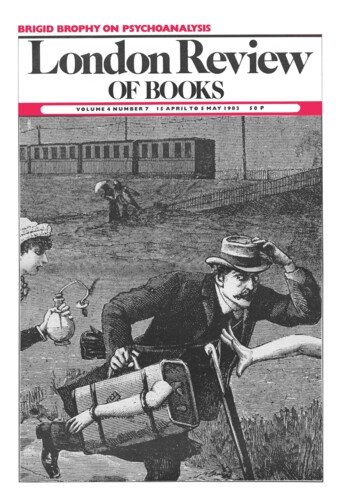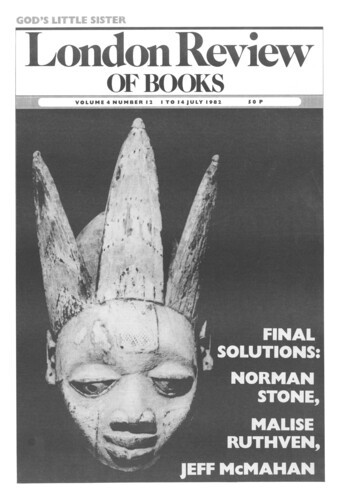Fiction and Failure
Adrian Poole, 15 April 1982
There is a point in Stanley Middleton’s Blind Understanding at which a man does not eat a dry biscuit. Listening to the sound of the nine o’clock television news from the distance of his kitchen, a 70-year-old retired solicitor remarks his immunity to the sad record of violent death, industrial disorder and foreign famine in worlds elsewhere. ‘Such did not touch him nearly; he could be disgruntled without adventitious help. He decided against eating a dry biscuit.’ By such minute and precise notations (‘piled up, fragment by fragment’, as another character observes) is this rich and dense account of a life rendered. As John Bainbridge sifts through his rag-bag of memories, we close in on the events and people and things that have nearly touched him nearly: the death of a young subaltern in the war, an adulterous affair with his sister-in-law and with many others, a painting, an unsuccessfully defended murderer – but usually, death. He is a man who has devoted himself to shrinking feeling to the point where the renunciation of a dry biscuit can signal a tiny, disgruntled triumph of the will.


